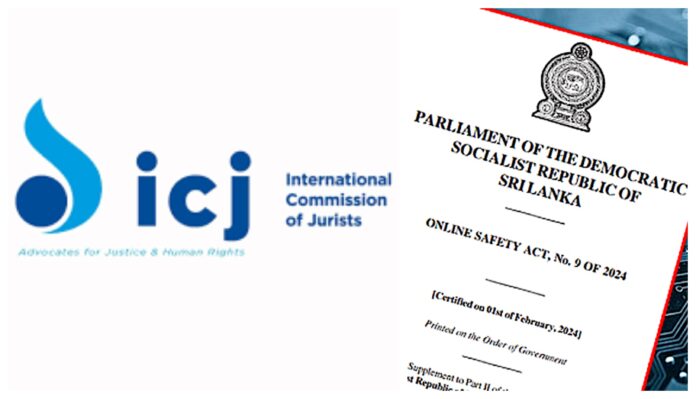The International Commission of Jurists (ICJ) has called on the Sri Lankan government to repeal or substantially amend the controversial Online Safety Act, No. 09 of 2024, citing serious concerns over its compliance with international human rights standards.
In a submission made in response to the government’s call for public input on proposed amendments, the ICJ stressed that the Act, which came into force in February 2024, risks undermining freedom of expression, opinion, and information guaranteed under both the Sri Lankan Constitution and the International Covenant on Civil and Political Rights (ICCPR).
The ICJ noted that since the law’s implementation, human rights concerns have materialized in practice. The first arrest under the Act took place in February 2024, when an individual was accused of running online smear campaigns against the government. Since then, the law has been invoked by authorities and parliamentarians to target individuals accused of spreading vaguely defined “prohibited statements.”
Key criticisms raised by the ICJ include: the overly broad powers granted to the Online Safety Commission and appointed “experts”; vague and sweeping offences; disproportionate sanctions; inadequate judicial oversight; and the potential for discriminatory impact on transgender and gender-diverse persons.
The government has said the Act was intended “to protect persons against harm caused by communication of prohibited statements.” A committee chaired by the Solicitor General, with members from the Attorney General’s Department, the Ministries of Justice, Public Security, and Media, and the CID, is currently reviewing proposed amendments published in the Gazette on 31 July 2024.
The ICJ urged that any revision process must involve full and inclusive consultations with stakeholders to ensure protection of fundamental rights and civic space in Sri Lanka.



